Proponents of supply-side solutions to housing typically refer to high housing vacancy rates as a good thing. In theory, more vacant apartments mean more options for renters and competition between landlords for renters. But a look at vacancy rates across the country reveal a more confusing picture: The rate does not track closely with overall affordability.
There are a few reasons for this, but one of the most alarming is the trend of short-term rentals. Since they emerged in the mid-1990s and were supercharged in the 2010s, it’s become common for homeowners who have a little bit of extra money to buy a second home as an investment so they can make “passive” income. In some cases, single owners have sprouted mini-empires of entire apartments being rented out on these services. Units being rented out short-term are listed as vacant in census surveys, but they are not available to renters—at least, not for anyone but tourists.
These units pock the landscape of large, coastal cities and persist despite drawing down regulatory hammers. But in some towns, vacation homes and Airbnbs have been given free rein to transform the landscape more fully, crowding working people to the margins.
In his book “Homesick,” Brendan O’Brien looks at the intersecting issues of second homes, investment properties and short-term rental companies like Airbnb, VRBO and Homeaway. Specifically, he looks at Flagstaff, Arizona; Bozeman, Montana; and St. George, Utah, where these companies have been allowed to run rampant, hollowing out communities and fraying the social fabric. Arizona even passed a law in 2016 making it illegal to regulate short-term rentals at the local level (the restrictions were loosened somewhat in 2022). The following interview has been edited for length and clarity.
When did you first notice that short-term rentals were a problem?
I first noticed that when I stayed in a short-term rental on a trip to New Orleans. I stayed with several friends; we thought we’d save some money and be in more of a home environment, not in a hotel. This was in 2017.
On that street, there was a sign that said “Neighbors not Airbnbs.” It touched off something in my mind where I started thinking about the potential impact, because the house next door was also an Airbnb. We knew because they were pretty loud. It stayed in the back of my mind.
Over the next several years, I was out West and working for public lands. I was trying to bring in more tourism to these places. But I saw these trends of more tourism and more expensive housing. When I started a master’s [degree program] in geography in Flagstaff, Arizona, I saw another sign, which said “Homes, not Hotels,” and I realized that it’s the same issue that I’ve seen popping up again and again: People who are not from the place but have a space to go that was formerly a home, and instead it’s being occupied by tourists and being used for its investment potential.
You mention in the book that there’s a contradiction between city leaders constantly incentivizing more well-to-do people to move there while saying they have to address a supply problem that they are creating. Can you elaborate?
At first I was studying mountain towns where a big part of their economy is based on tourism. You really see the contradiction there, because tourism jobs typically don’t pay a lot. You have people working in hotels, you have people working in retail, working in restaurants and bars, and those jobs are not going to support an outrageous rise in property values.
You have people buying up properties in these places, with the intent of turning them into second homes, turning them into investments. I saw city officials speaking out of both sides of their mouth when they said, “Yeah, we really have this supply issue,” but then they bend over backwards to incentivize more demand.
Housing is typically seen as a local issue. But it’s gone global in so many places. You have people buying up properties from other countries and just using that as a place to store their money because that’s appreciating faster than the stock market many times.
There’s an argument often made that housing doesn’t need to be affordable, that market-rate housing will help poor people in the long run.
It’s always in the long run. There’s this message of, well, this is going to help you indirectly. I don’t deny that we have a housing shortage overall. But the reason we don’t have enough homes is because it’s not seen as profitable. And one of the biggest things is that the market is given over to speculation. The price of homes is being driven through the roof in many places, because a segment of homes are second homes or short-term rentals. It raises the price for everything.
When people are buying up land, they’re going to price it with the expectation that somebody can make a lot of money by building here, and that just inflates the price of housing. So the housing that is more affordable never gets built.
There needs to be an express focus on building for people who actually live in a place. Once you give the market free rein to build for anyone, then you’re just hoping that it trickles down to people. But increasingly, housing is seen as a commodity.
You’ll always need more housing built in a place if the housing that is getting built is just being held as an asset with the goal of dragging it up as much as possible. There needs to be a goal of housing starting and staying affordable, [so that] if a teacher moves to a house in 2024, a teacher can afford that house in 2044. If the goal is always to make as much money as fast as possible, it’s not going to be affordable.
Airbnb says it’s just helping people with mortgages earn some extra income. What do you think about that argument?
Short-term rentals as they were originally marketed, [the idea] was, you have a spare bedroom, you can rent that out to people and make some extra money. It’s a better use of space when otherwise that room would just go empty. Someone coming into the community as a traveler can get a sense of the landscape because they know someone already. They’re staying with them.
The person who lives there can benefit more directly from tourism, and I still think that’s a great idea. But the way that short-term rentals have transformed over time—using the three [cities] that I studied Flagstaff, Arizona; St. George, Utah; Bozeman, Montana; as examples—it’s upwards of 90 percent of short-term rentals that are the entire home. Most of those are offered up for more than half a year. It’s not someone who’s just in an economically precarious situation, it’s someone who doesn’t live in a place seeing an investment opportunity and buying that up with the express purpose of housing tourists.
I see those very differently. And I think the first one should be protected. I think that’s a great source of income potential, and you can monitor over time [if] maybe that gets abused in some places. But I think that’s very different when you’re renting out a room and you actually actively live in a place versus renting an entire place.
In the book, you mention a law in Arizona that preempts local governments from regulating short-term rentals. I think it’s the only statewide law of its kind in the country. It seems pretty drastic. How did that even happen?
They’ve loosened it a little bit, but that’s still broadly the way the law is written, that cities have very limited regulatory power over short-term rentals.
There’s a group called the State Policy Network, and they have different think tanks across the country. There’s generally one in every state. In Arizona, it’s the Goldwater Institute. They were really instrumental in advocating for that law. And then the short-term rental industry, Airbnb, VRBO, FlipKey, all of those, they lobbied hard for it. And the governor at the time, he he made major overtures [to] the two so-called sharing economy companies, and his goal was to make the sharing economy as vibrant in Arizona as Silicon Valley was for the tech industry.
He cited the economic impact, specifically of how much money would be brought in. There was a lot of support for it. And it was a bipartisan bill.
There is more opposition to it [now], but it hasn’t been taken down.
There are similar laws that have been brought up in other places, and advocacy for similar laws in other states. And it’s tied back to this network, and the laws that they’re advocating for are almost precisely the same. Government officials just become rubber stamps for these think tanks and these agencies. It’s mind-boggling the amount of power that these groups of people—who aren’t elected, who aren’t representative of the state—hold over elected officials across the country.
Have vacation rentals, not just short-term rentals, been growing in popularity as well?
There have been studies done that show people are specifically buying a second home or a third home, and they may go there seasonally or they may go for a few days every couple of months. But their primary purpose with it is to rent it out as a short-term rental. Maybe they’ll plan to move there years from now, but it’s primarily an investment property. They’re specifically looking for where the market will go up in value, and at the same time, driving up the market.
When I was studying this, I started thinking about the impact of short-term rentals, and then I started thinking about why there were so many empty entire homes in the first place. And that’s where you get into second homes, and homes being used as investment properties, and speculation that’s driving up the cost of land.
I really started seeing this trend throughout U.S. history. The second part of the book is a deep dive into the history of things that on the surface don’t seem related. I go back through colonization, the movement west across the United States, talking about the Homestead Act, about the military entering into places and clearing it. I talk about suburbanization of the country, of gentrification. What ties all these things together is that communities are being cleared of existing residents—of the people who make it up and make the place—for outsiders who are perceived to have more money. Throughout history, communities are being sacrificed for profit.
In the book, you use the phrase “Zombie Towns” to describe places that have been hollowed out by short-term rentals. Can you describe that?
People are pretty aware of a ghost town, where there was one industry that the town was dependent on that seemed to be profitable. And people moved away, and then the town dried up entirely.
The idea of a Zombie Town … it’s this idea that the town is still operating, and anybody who goes there can go to shops, and they can buy things. They can go out to eat, they can have someone serving them, they can stay in a house or a hotel. The town seems to be thriving. But it’s just been hollowed out, where increasingly the people who work the jobs there don’t live there. They have to drive 30 minutes, 40 minutes, an hour away. And the town itself has become just a shell. It’s like a movie set, where people can go and experience it, and experience these beautiful parks, but there’s no sign of the people who maintain them. They can go and admire the art in town. But the artists increasingly don’t live in the buildings. The people who do everything that makes the place a community have ceased to exist in the space.
I would argue that that’s part of the allure for people coming in. People are coming into a place that seems like it’s for them. And the thing is that, for all intents and purposes, it has been made into that. The homes are now for tourists; the shops are now for tourists.
That can sound pretty dramatic, but that is happening throughout the country, and especially in smaller towns in the U.S.
There are also similar trends, in different parts of New York and L.A. and Chicago and larger cities, where [people] come back home when they’ve been away for a while, or they have tried to stay in the place. At some point, they look up and realize, I don’t recognize people here. The shops that I used to go to, the school that I went to, has moved away. The things that made this place special have been taken away. I think it’s a very sad state of affairs that happens in very rural places and very urban places, and it doesn’t have to be this way.
Many interviewees who I talked to, government officials and researchers, there was a sense that this is inevitable, that this is just the way that things go. That doesn’t have to be the case. There are so many other ways of maintaining community, of keeping places where they can still change, but it’s changing because existing residents are allowing them to change. They have new people coming in without that new presence displacing the old.
It seems like there have been renewed attempts to regulate short-term rentals, if not vacation homes, across the country, including in New York City. What impact has that had?
Bozeman, Montana, just severely restricted new short-term rentals. There are various smaller towns in Colorado that are doing so. A lot of places are realizing that they’ve been late to regulate them and now they’re confronting it. Because they realized: OK, maybe we do have a housing shortage.
But it’s low-hanging fruit to start taxing people who don’t live in a place, start taxing investment properties, and using that to build more affordable housing. There are a lot of examples throughout the country where they’re addressing things on a small scale. I think there’s a movement brewing, from organizations on the ground working throughout the country, to not just tax short-term rentals but change our entire understanding of housing. They want to recognize housing as a human right, and it’s connected to all these other issues.
When housing is seen as a commodity, you have an influx of people who are unhoused on the street. You have instances where people are paying more and more of their wages to the point where they’re forced further out of town.
Suddenly, to pay workers enough to live there, the price of a pizza goes up to 25 bucks. Going out to eat becomes too expensive for most people. Suddenly the things that make it a vibrant community are no longer accessible. So there is a lot of movement brewing to build more housing specifically for residents in a place, specifically for people who are working the jobs that maintain a place.
At one point you cite a study from the 1970s predicting that vacation rentals would become a huge problem for the housing industry. How long have we known this was a problem?
They were ahead of their time in seeing that trend, and they probably would have been very surprised at just how little oversight government would have given as this process has taken hold.
Government in many cases is actively supporting the commodification of housing. Leilani Farha, the U.N. Special Rapporteur on adequate housing [from 2014-2020], noted that the Department of Housing and Urban Development sold off a lot of foreclosed homes, hundreds of thousands of foreclosed homes [during the 2008 mortgage crisis]. They didn’t sell them back to people who are struggling to afford housing, they sold them to Blackstone and large private equity firms. They sold them for pennies on the dollar. Those private equity firms turned around and made them into huge sources of profit, renting them out for above-market rates.
There’s a larger conversation we need to have as a country. There’s a denial where a lot of people who have multiple properties that they rent out for market rates, they increasingly say, oh, well, we’re low income or we’re middle income. But they have multiple properties that are worth hundreds of thousands of dollars. They’re renting them out for market rate or above market rate, or they’re renting them out as short-term rentals, or they’re just holding on to them expecting that the housing prices will appreciate in value.
That’s actively stoking the flames of the inequality that we have in the country. There needs to be more reflection about everyday decisions—where are your investments, where is your income going? As a society, what do we want to reward? What do we want to incentivize? Because we’re incentivizing people to buy properties and just hold on to them or buy properties and rent them out for higher rates. The problems that exist today are not going to get better. I think they can get better; we just need to really focus our attention on what’s happening on a larger scale.
Is there anything else you would like to add?
One thing is all this happens along the existing lines of inequality. The racial inequality that we see throughout our country is the result of the housing system and it’s continued to worsen because of the housing system. When we focus on growth at all costs, when we see housing as a commodity, that further entrenches racial inequality.
The second thing is that the environmental impact of all this is huge. And when I tell people that I was studying geography and I was studying housing, they oftentimes are confused. But the way that we use land, the way that we decide who gets to live in a place, has a huge environmental impact.
When we have housing strictly tied to turning a profit, where it’s just a commodity, suddenly you have houses sitting empty. You have incentives to not build more housing and not build denser housing, you have incentives to keep people dependent on cars, so they have to drive further and housing gets built further out. In addition to the emissions from that, it also builds this elaborate system of roadways and pipelines and utility systems that destroy entire ecosystems. If we want to address the many environmental crises that we’re in right now, housing is one of the best ways to do that—to stand up and say that housing is a human right and that empty properties shouldn’t be investment properties. All the things that make a community run should be accessible within walking distance, biking distance, transit distance.
I think it comes down to what are our goals as a society. We treat housing as an individual choice and individual responsibility, but communities shatter when we treat them that way. We need to see things as intertwined, that our lives are very much intertwined.
This story was co-published in collaboration with Shelterforce, the only independent, non-academic publication covering the worlds of affordable housing, community development and housing justice.
This article is part of Backyard, a newsletter exploring scalable solutions to make housing fairer, more affordable and more environmentally sustainable. Subscribe to our weekly Backyard newsletter.

Roshan Abraham is Next City's housing correspondent and a former Equitable Cities fellow. He is based in Queens. Follow him on Twitter at @roshantone.



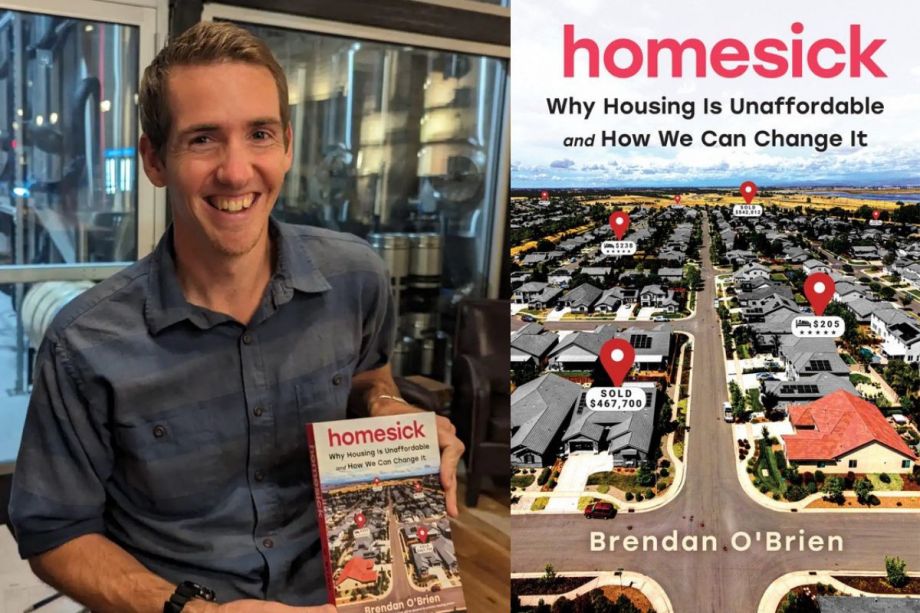
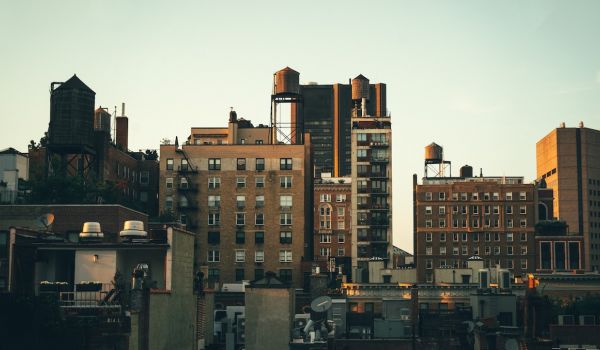
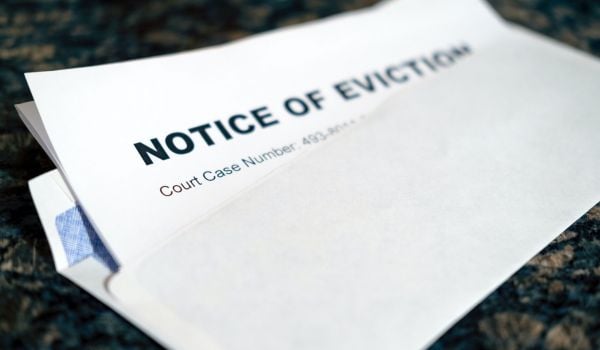

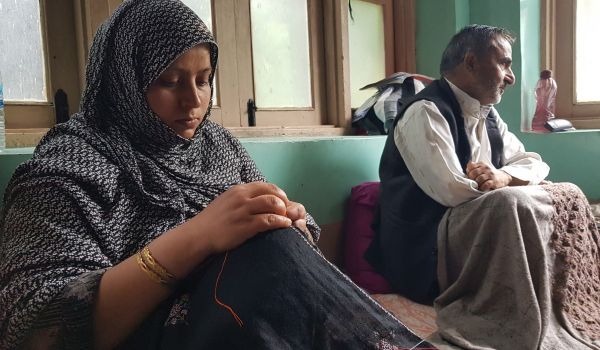

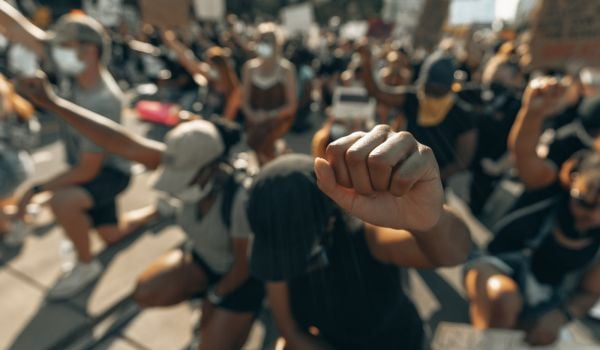
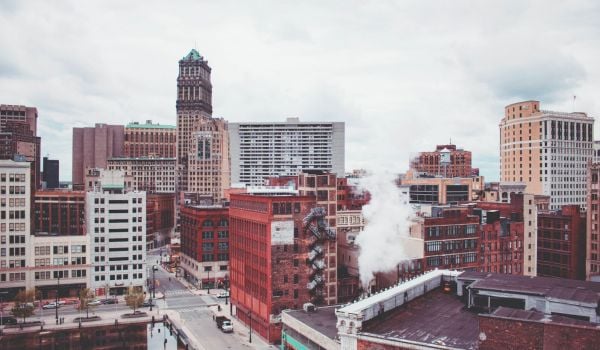








Add to the Discussion
Next City sustaining members can comment on our stories. Keep the discussion going! Join our community of engaged members by donating today.
Already a sustaining member? Login here.